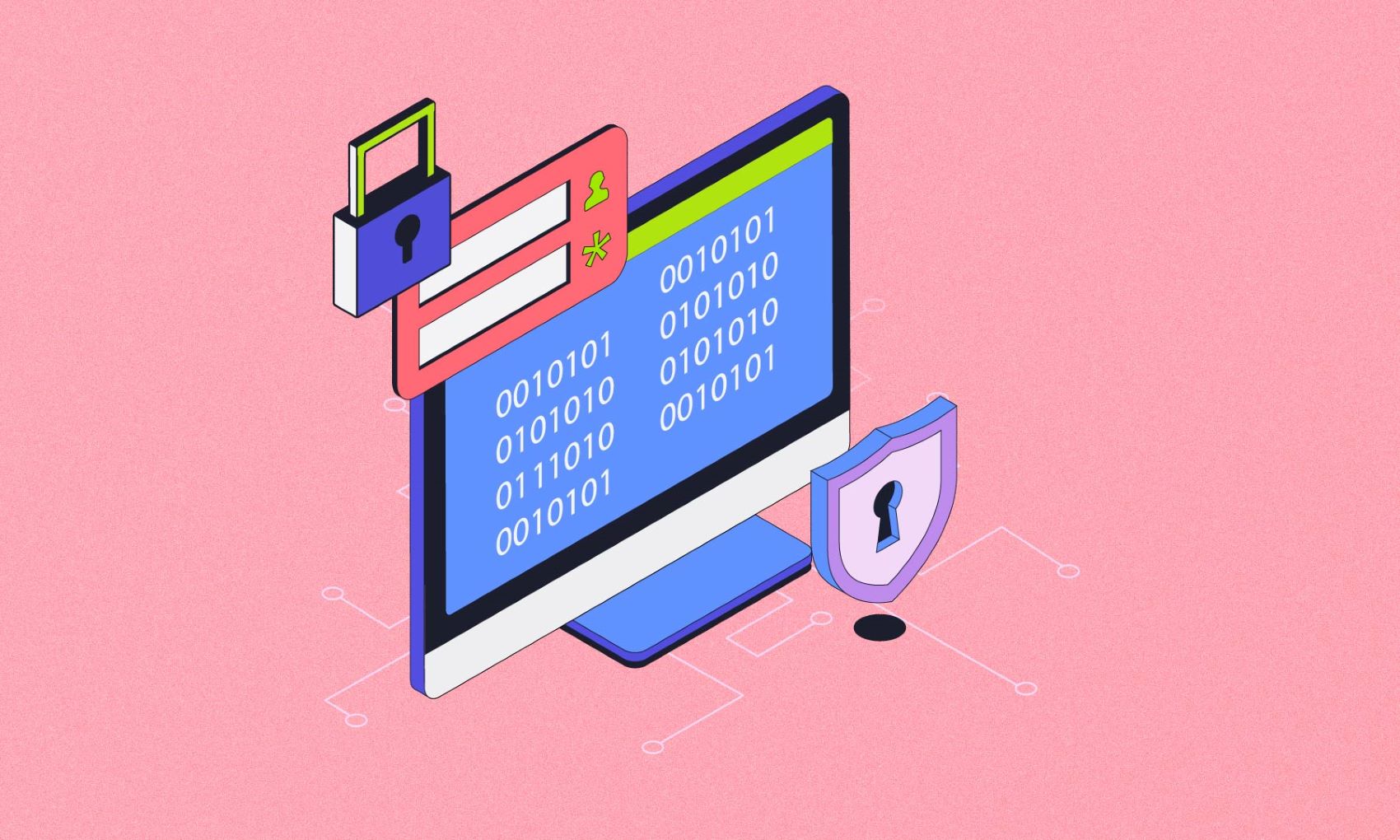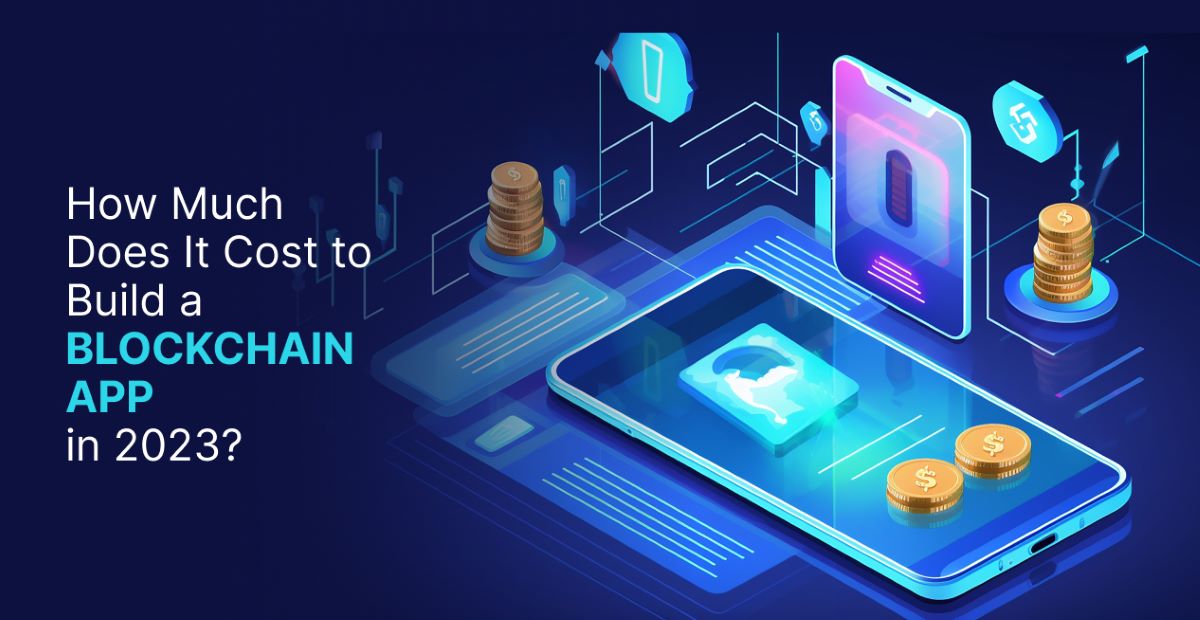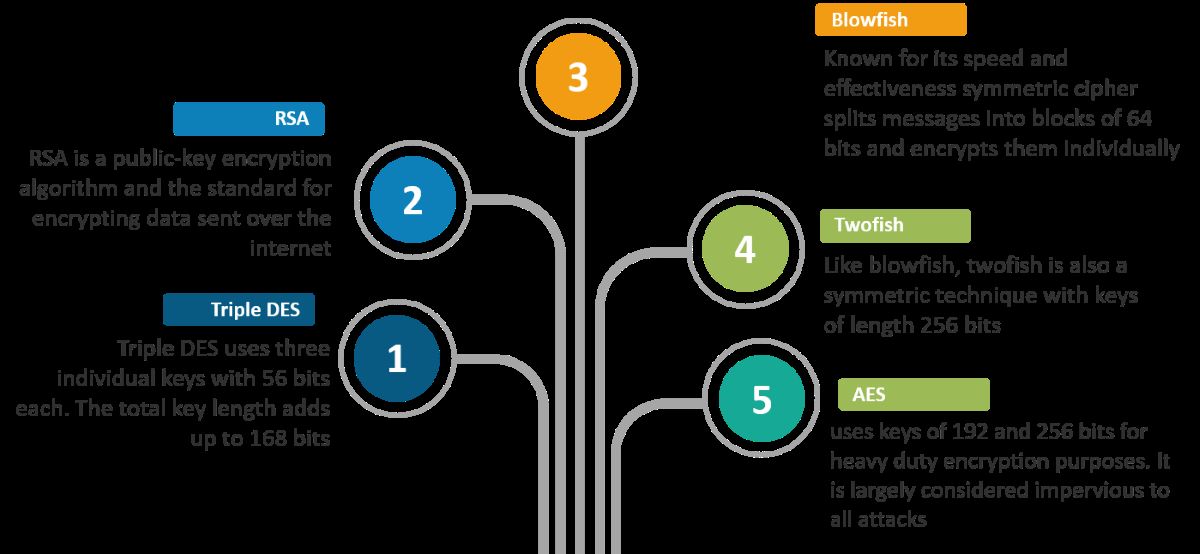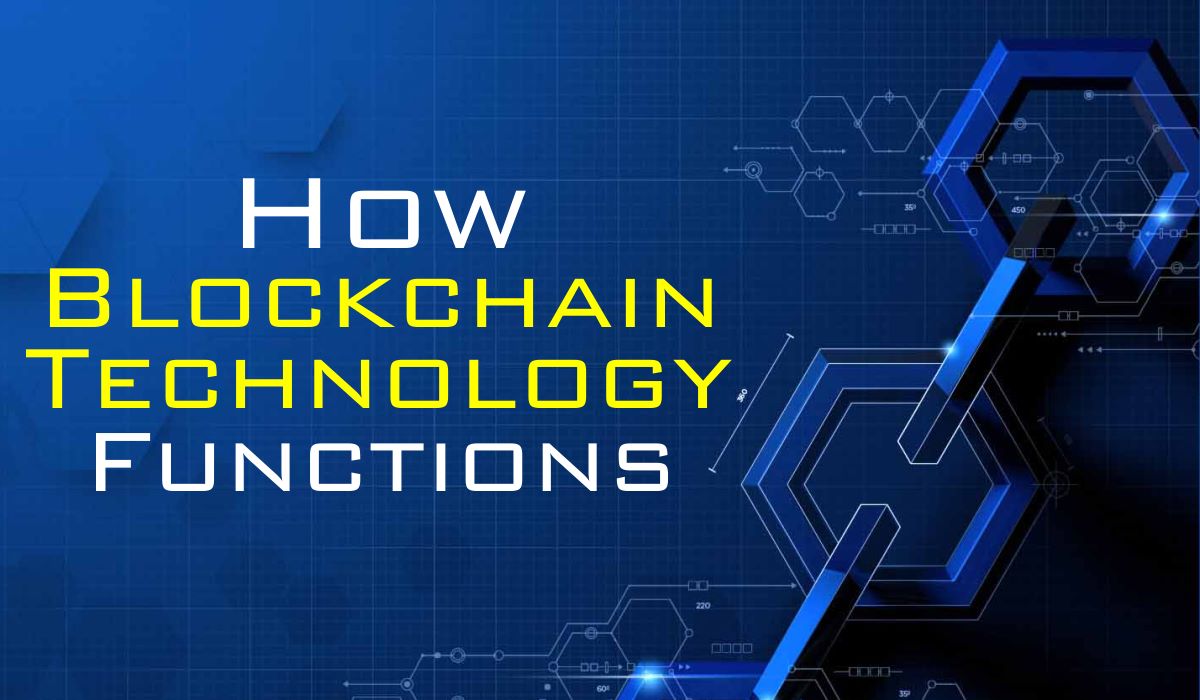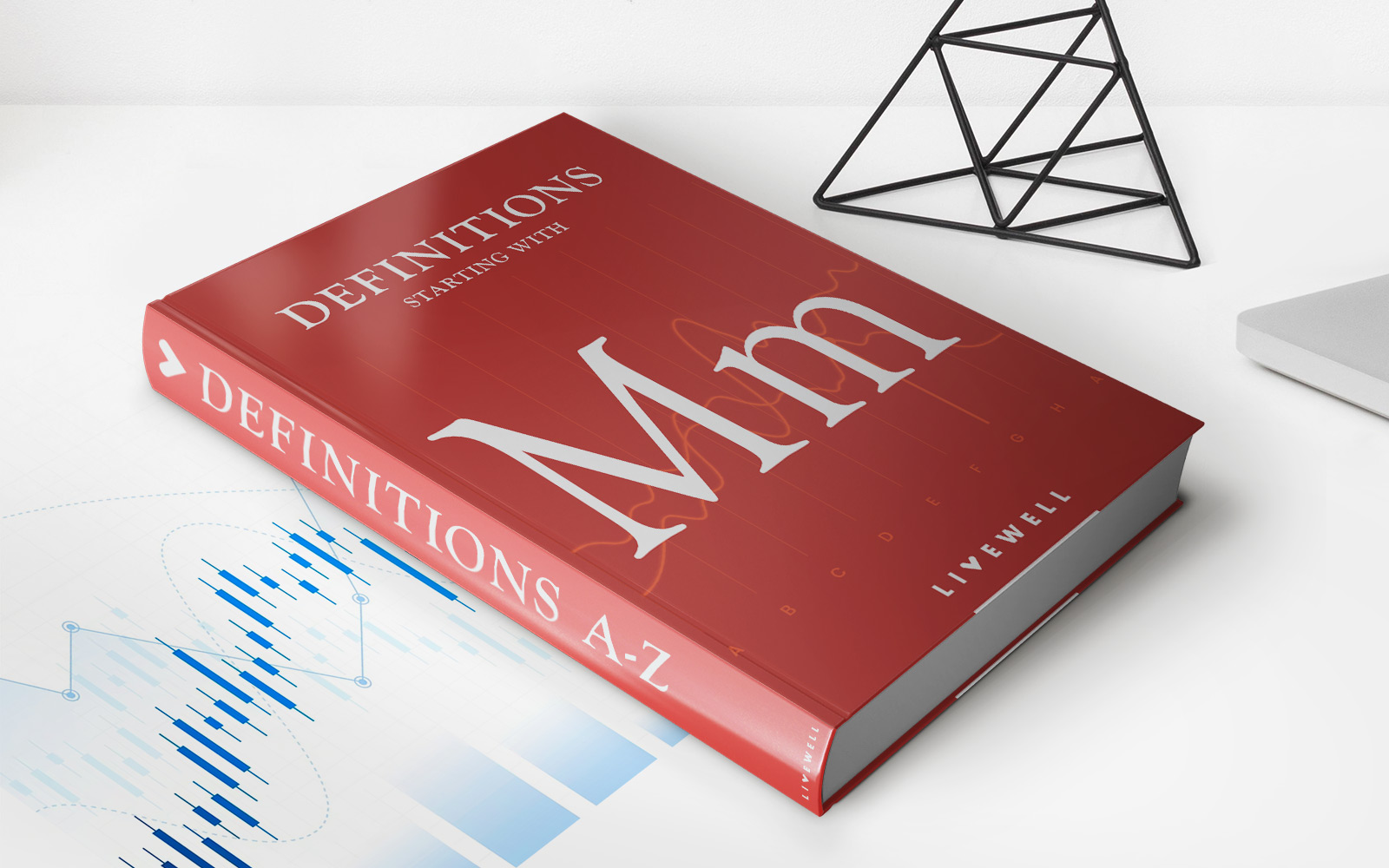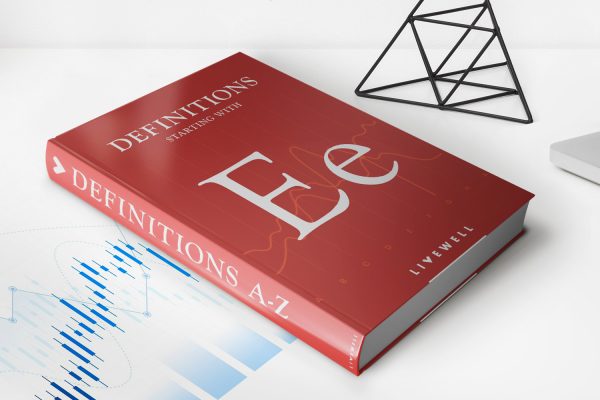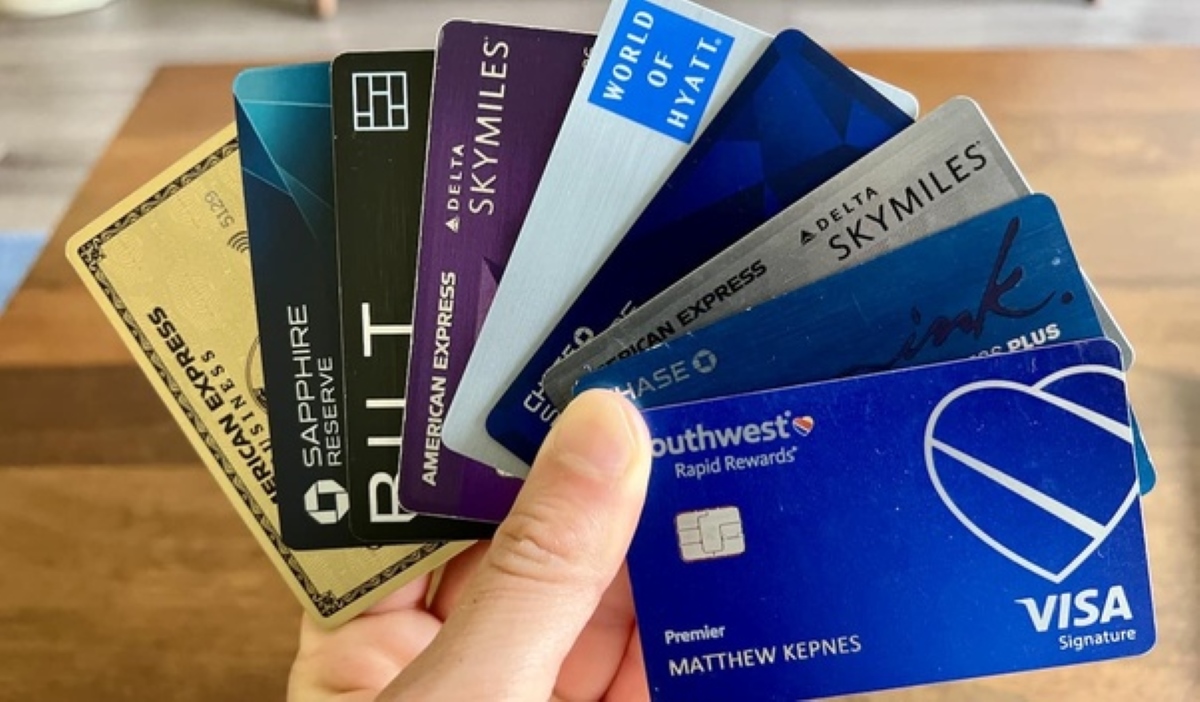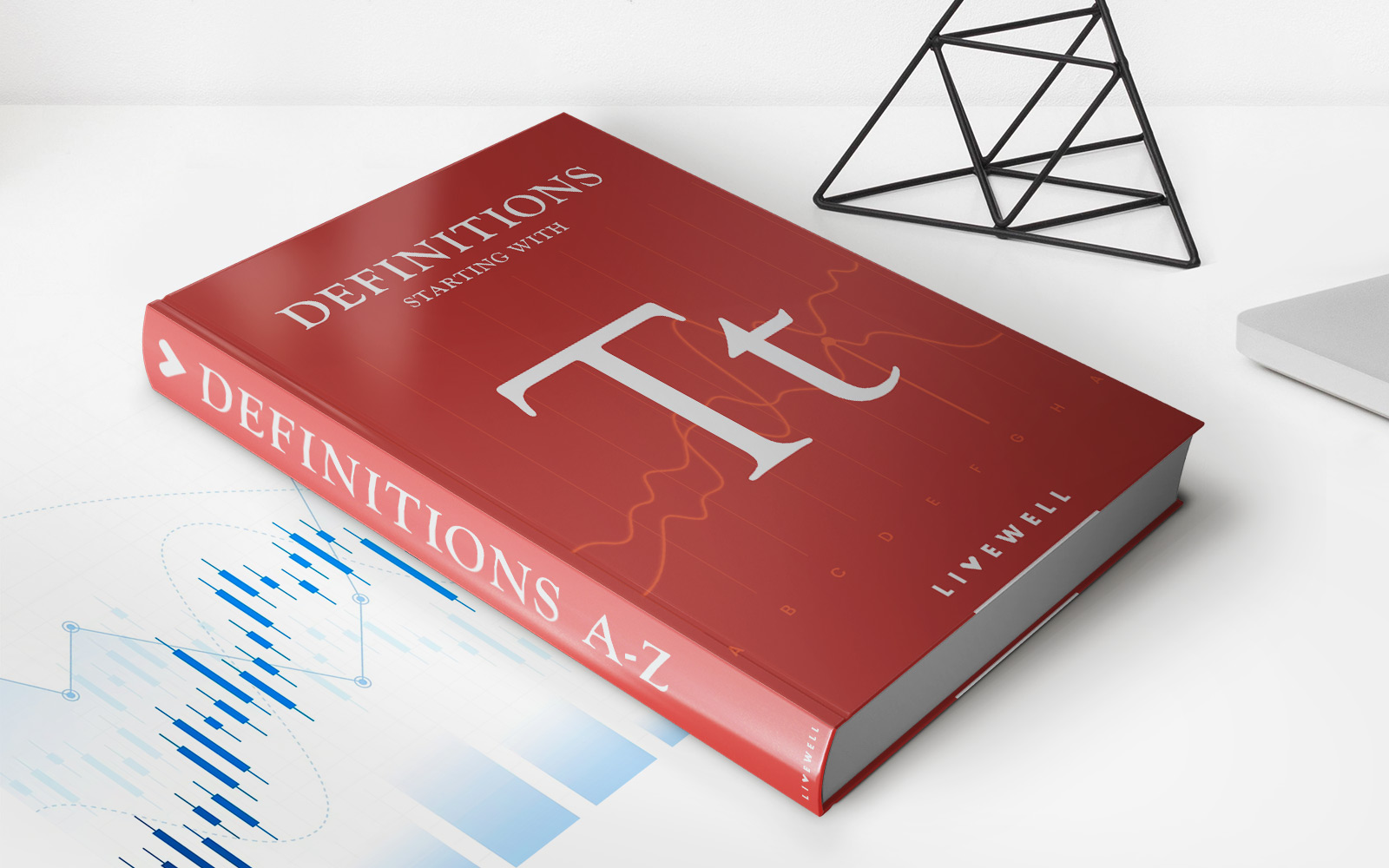Home>Finance>How Does Blockchain Technology Help Organizations When Sharing Data?


Finance
How Does Blockchain Technology Help Organizations When Sharing Data?
Published: October 23, 2023
Explore how blockchain technology is revolutionizing data sharing in the finance industry, empowering organizations with secure and transparent transactions.
(Many of the links in this article redirect to a specific reviewed product. Your purchase of these products through affiliate links helps to generate commission for LiveWell, at no extra cost. Learn more)
Table of Contents
Introduction
Welcome to the digital age, where data has become a valuable asset for organizations across various industries. As businesses strive to stay ahead in a fast-paced and interconnected world, the need to securely share and manage data has become paramount. However, traditional methods of data sharing often lack the necessary security measures and transparency required for trust and accountability.
This is where blockchain technology comes into play. Originally introduced as the underlying technology behind cryptocurrency, blockchain has since evolved into a powerful tool with numerous applications beyond digital currencies. One such application is in the realm of data sharing.
Blockchain technology is a distributed ledger system that enables the secure and transparent exchange of digital assets. It operates by creating a network of participants who jointly validate and record transactions in a decentralized manner. This network of participants, known as nodes, ensures the integrity and immutability of data stored on the blockchain.
In the context of data sharing, blockchain provides several benefits that address the limitations of traditional data sharing methods. From improved data security to increased transparency and streamlined processes, blockchain technology is revolutionizing the way organizations share and manage their data.
In this article, we will explore the benefits of blockchain in data sharing, highlighting how it enhances data security, accountability, transparency, and the efficiency of sharing processes. Additionally, we will delve into real-world use cases of blockchain technology in data sharing to showcase its practical applications and potential impact on organizations across various sectors.
So, let us dive deeper into the world of blockchain technology and discover how it can revolutionize data sharing for organizations.
Understanding Blockchain Technology
Before delving into how blockchain technology helps organizations when sharing data, it is important to grasp the fundamentals of how this technology works. At its core, blockchain is a decentralized and transparent digital ledger that records and verifies transactions across multiple computers or nodes.
Each transaction is packaged into a block, which contains a unique digital signature, a timestamp, and relevant data. These blocks are then linked together in a chronological order, forming a chain of blocks – hence the name “blockchain.” The decentralized nature of blockchain means that no single entity has control over the entire network, ensuring transparency and the prevention of data manipulation.
One of the key features of blockchain technology is its immutability. Once a block is added to the chain and verified by the network, it becomes almost impossible to alter or tamper with the data contained within it. This level of immutability provides a high degree of trust and security, making blockchain an ideal solution for sharing sensitive data.
Additionally, blockchain operates on a consensus mechanism, where all participating nodes in the network must agree on the validity of a transaction before it can be added to the blockchain. This consensus mechanism, often based on proof-of-work or proof-of-stake algorithms, ensures that the data stored on the blockchain remains accurate and reliable.
Furthermore, blockchain technology eliminates the need for intermediaries in data sharing. Traditional methods of sharing data often involve trust in third-party entities such as banks, governments, or centralized platforms. With blockchain, transactions are verified and recorded by the network itself, removing the need for intermediaries and reducing costs and delays associated with data sharing.
Overall, blockchain technology offers a decentralized, secure, transparent, and efficient way of recording and sharing data. Its unique features make it an ideal solution for organizations seeking to enhance their data sharing processes, increase security, and maintain trust.
Now that we have a solid understanding of blockchain technology, let’s explore how it can specifically benefit organizations when it comes to sharing data.
Benefits of Blockchain in Data Sharing
The adoption of blockchain technology in data sharing provides several significant benefits that address the shortcomings of traditional methods. Let’s explore some of the key advantages:
- Improved Data Security: One of the primary advantages of utilizing blockchain in data sharing is enhanced security. Traditional centralized databases are susceptible to hacks and data breaches, as a single point of failure can compromise the entire system. In contrast, blockchain’s decentralized nature makes it incredibly secure. Each transaction is encrypted, and once added to the blockchain, it becomes virtually impossible to alter the data without detection. This cryptographic security ensures the integrity and confidentiality of the shared data.
- Enhanced Data Accountability: Blockchain technology inherently promotes accountability in data sharing. Every transaction recorded on the blockchain is transparent and can be traced back to its origin. The immutability of the blockchain ensures that data cannot be tampered with, providing a transparent audit trail. This feature is particularly valuable in industries where data integrity is crucial, such as supply chain management or financial services, as it allows for reliable and verifiable data.
- Increased Data Transparency: Transparency is another crucial benefit of blockchain in data sharing. As each participant in the blockchain network has a copy of the shared ledger, they have access to all transactions and information recorded on the blockchain. This transparency builds trust between parties, as there is no reliance on a single entity to handle or control the data. It also allows for real-time visibility into the data sharing process, reducing the need for manual audits and reconciliations.
- Streamlined Data Sharing Processes: Blockchain eliminates the need for intermediaries, streamlining the data sharing process. With traditional methods, data exchange often involves multiple intermediaries, resulting in delays, additional costs, and potential vulnerabilities. By leveraging blockchain technology, organizations can establish direct peer-to-peer data sharing networks, enabling faster and more cost-effective transactions. This efficiency not only saves time and resources but also reduces the risk of errors or data manipulation.
The benefits of blockchain in data sharing extend beyond these key advantages. It enables secure data sharing across organizational boundaries, fosters trust between parties, and reduces administrative burdens. Blockchain technology has the potential to revolutionize the way organizations handle and exchange data, opening up new opportunities for collaboration and innovation.
In the next sections, we will delve into specific use cases where blockchain technology has been successfully applied in data sharing across various industries.
Improved Data Security
In today’s digital landscape, data security is of utmost importance. Organizations must protect their valuable data from unauthorized access, breaches, and tampering. Traditional methods of data storage and sharing often face challenges in maintaining a high level of security. This is where blockchain technology brings a significant advantage to the table.
Blockchain provides enhanced data security through its decentralized and cryptographic nature. When data is stored on a blockchain, it is encrypted and distributed across multiple nodes within the network. This means that even if one node is compromised, the data remains secure as the attacker would need to target a majority of the nodes to alter the information. This architecture makes it extremely difficult for hackers to tamper with or gain unauthorized access to the data.
Furthermore, blockchain technology utilizes advanced cryptographic algorithms to ensure the integrity and confidentiality of the shared data. Each transaction recorded on the blockchain is timestamped, digitally signed, and linked to the previous block using a hash function. This creates a chain of blocks where any modification to a single block would break the chain, alerting the network to potential tampering.
The immutability of the blockchain ensures that once data is recorded, it cannot be changed or deleted. This feature is crucial for ensuring the integrity and auditability of sensitive information. For industries such as healthcare, finance, or supply chain management, where data accuracy is paramount, blockchain provides a robust solution for secure data sharing.
Moreover, blockchain technology can utilize smart contracts, which are self-executing contracts with predefined rules and conditions. Smart contracts automatically enforce the terms of an agreement, eliminating the need for intermediaries and reducing the risk of human error or manipulation. These contracts are stored and executed on the blockchain, ensuring transparency and security throughout the entire process.
By leveraging blockchain technology in data sharing, organizations can significantly enhance their data security measures. The decentralized nature of blockchain, combined with advanced cryptographic algorithms and smart contracts, creates a robust and tamper-proof environment for storing, sharing, and managing sensitive information.
With improved data security, organizations can gain the confidence to collaborate and share data without the fear of unauthorized access or data breaches. This paves the way for more efficient and secure data sharing across industries, leading to enhanced trust, value creation, and innovation.
Enhanced Data Accountability
Data accountability is a critical aspect of data management, particularly in industries where accuracy and trustworthiness are paramount. Traditional methods of data sharing often lack the necessary transparency and accountability required to ensure the integrity of the shared information. This is where blockchain technology plays a pivotal role in enhancing data accountability.
Blockchain provides an immutable and transparent ledger where every transaction is recorded and linked to the previous transaction in a chronological order. This creates a transparent audit trail that allows for easy verification and validation of data. Since the data stored on the blockchain cannot be altered or tampered with, organizations can rely on the accuracy and authenticity of the information shared.
The decentralized nature of the blockchain further enhances data accountability. In a traditional centralized system, data management and validation are often controlled by a single entity or authority, leaving room for potential biases or errors. With blockchain, the validation of transactions is distributed among multiple participants or nodes in the network. Each participant independently verifies the transactions, ensuring a consensus on the accuracy and validity of the shared data.
Moreover, blockchain technology introduces the concept of digital signatures, which provide an added layer of accountability. Every transaction on the blockchain is digitally signed by the respective participants using cryptographic encryption. These signatures serve as proof of identity and ensure that only authorized individuals can initiate and validate transactions. This strengthens the accountability of data sharing, as each transaction can be traced back to the responsible party.
Additionally, blockchain technology can facilitate the implementation of access controls and permissions within the network. Organizations can define and enforce specific rules and regulations regarding data access, ensuring that only authorized parties are granted permission to view or modify the data. This granular control over data access enhances accountability and reduces the risk of unauthorized data manipulation.
By leveraging blockchain technology in data sharing, organizations can establish a high level of accountability throughout the entire data lifecycle. From the creation and validation of data to its sharing and access control, blockchain ensures transparency, immutability, and traceability, thus fostering trust and accountability among participating entities.
The enhanced data accountability provided by blockchain technology not only benefits individual organizations but also promotes trust and collaboration among multiple stakeholders. This opens up new possibilities for secure data sharing across industries, leading to increased efficiency, improved decision-making, and greater value creation.
Increased Data Transparency
In today’s interconnected world, transparency is a fundamental factor in establishing trust and credibility. Traditional methods of data sharing often lack the necessary transparency to ensure that information is accurate, reliable, and tamper-proof. This is where blockchain technology shines by providing increased data transparency.
Blockchain operates as a distributed ledger, where all participants in the network have a copy of the shared ledger. This shared ledger contains a complete and transparent record of all transactions. Since all participants have access to the same information, it becomes difficult for any party to manipulate or conceal data without detection.
Furthermore, each transaction recorded on the blockchain is transparent and visible to all participants. This transparency fosters trust, as it allows for independent verification of the data. Any participant can review and validate the transactions, ensuring that the shared information is accurate and reliable.
The transparency of blockchain is further enhanced by its immutability. Once a transaction is added to the blockchain, it becomes practically impossible to alter or delete it. This provides a historical record of all transactions, creating an audit trail that can be relied upon for accountability and transparency purposes.
Moreover, blockchain technology enables real-time visibility into the data sharing process. Traditional methods of data sharing often involve manual processes, delays, and the need for periodic audits to ensure data accuracy. With blockchain, participants can have a real-time view of data transactions, eliminating the need for manual reconciliations and audits. This not only saves time and resources but also increases the efficiency of data sharing processes.
Additionally, blockchain’s transparency extends to the validation and verification of data. As transactions are recorded on the blockchain, participants in the network independently verify the validity of each transaction through a consensus mechanism. This ensures that only accurate and valid data is added to the blockchain. If any party attempts to introduce false or incorrect information, the consensus mechanism will reject the transaction, maintaining the integrity and transparency of the shared data.
By leveraging blockchain technology in data sharing, organizations can establish a high level of transparency that promotes trust among participating entities. Through the shared ledger, real-time visibility, immutability, and consensus-based validation, blockchain enhances data transparency, allowing organizations to make informed decisions based on reliable and verifiable information.
This enhanced data transparency not only benefits individual organizations but also contributes to building trust and credibility across industries. It fosters collaboration, encourages accountability, and enables stakeholders to make well-informed decisions, leading to improved business processes and outcomes.
Streamlined Data Sharing Processes
Data sharing plays a vital role in today’s interconnected world, enabling collaboration and information exchange between organizations. However, traditional methods of data sharing often involve intermediaries, complex processes, and delays, leading to inefficiencies and higher costs. This is where blockchain technology comes in, offering streamlined data sharing processes that bring numerous benefits to organizations.
Blockchain eliminates the need for intermediaries in data sharing. Instead of relying on third-party entities, blockchain allows organizations to establish direct peer-to-peer connections. By leveraging the decentralized nature of the technology, data can be shared directly between parties, reducing the time, cost, and complexity associated with intermediaries.
Additionally, blockchain technology enables the use of smart contracts, which are self-executing contracts with predefined rules and conditions. These contracts automatically execute and enforce the terms of an agreement, eliminating the need for manual intervention. This automation streamlines the data sharing process, reducing the administrative burden and potential errors that often arise from manual processes.
Smart contracts can facilitate the automatic verification and validation of data, ensuring that all parties involved adhere to the agreed-upon rules for data sharing. This not only reduces the need for manual audits and reconciliations but also increases the efficiency and accuracy of the data sharing process.
Furthermore, blockchain offers fast and secure transactions, allowing for near-instantaneous data sharing. Traditional methods often involve lengthy approval processes, paperwork, and manual verification, resulting in delays and inefficiencies. With blockchain technology, data transactions can be completed within minutes or even seconds, enabling real-time collaboration and decision-making.
Blockchain also provides a single source of truth for shared data. With each transaction recorded on the blockchain, all participants in the network have access to the same information. This eliminates the need for data reconciliation and ensures that everyone is working with the most up-to-date and accurate data. As a result, organizations can make faster and more informed decisions based on real-time data.
Moreover, blockchain technology offers a higher level of data integrity and security compared to traditional methods. The decentralized and immutable nature of blockchain ensures that the shared data remains tamper-proof and protected from unauthorized access. This instills trust among participating entities, further streamlining the data sharing process.
By leveraging blockchain for data sharing, organizations can simplify and expedite the exchange of information while reducing costs and enhancing security. The elimination of intermediaries, automation through smart contracts, real-time transactions, and the assurance of data integrity all contribute to a streamlined data sharing process that promotes efficiency and collaboration.
In the next section, we will explore real-world use cases of blockchain technology in data sharing to demonstrate its practical applications across different industries.
Use Cases of Blockchain in Data Sharing
Blockchain technology has demonstrated its potential to revolutionize data sharing across various industries. Let’s explore some real-world use cases that highlight how blockchain is being leveraged to enhance data sharing processes:
- Supply Chain Management: Blockchain has found significant application in supply chain management, where data sharing among multiple stakeholders is crucial. By utilizing blockchain, organizations can securely share and track information about the movement of goods, ensuring transparency and authenticity at each stage of the supply chain. This enables real-time visibility, reduces delays, and helps combat counterfeit products.
- Healthcare: The healthcare industry deals with sensitive patient data, and ensuring its secure and efficient sharing is paramount. Blockchain technology provides a platform for patients, doctors, hospitals, and insurance providers to securely share and access medical records, ensuring data integrity and privacy. It also simplifies the insurance claims process, reducing fraud, and enhancing transparency.
- Finance and Banking: Blockchain has the potential to disrupt traditional financial systems by enabling secure and efficient data sharing in banking and finance. It can streamline cross-border transactions, reduce settlement times, and enhance security by eliminating intermediaries. Blockchain-based smart contracts can automate tasks such as loan approvals and auditing, provi
Conclusion
Blockchain technology has emerged as a transformative force in the realm of data sharing. Its decentralized nature, cryptographic security, and transparent ledger make it an ideal solution for organizations seeking to enhance their data sharing processes. By leveraging blockchain, organizations can benefit from improved data security, enhanced accountability, increased transparency, and streamlined data sharing processes.
The enhanced data security provided by blockchain ensures the integrity and confidentiality of shared information. With advanced encryption and distributed storage, blockchain mitigates the risk of data breaches and tampering, allowing organizations to share sensitive data with confidence.
Blockchain also fosters enhanced data accountability by providing a transparent and tamper-proof record of all transactions. The immutability of the blockchain ensures data integrity and facilitates traceability, making it ideal for industries that require a robust and auditable data trail.
Increased data transparency is another notable benefit of blockchain technology. With a shared ledger accessible to all participants, blockchain promotes trust and eliminates the need for reliance on intermediaries. Real-time visibility into data transactions and the elimination of manual audits and reconciliations enhance efficiency and decision-making processes.
Furthermore, blockchain enables streamlined data sharing processes by eliminating intermediaries and automating tasks through smart contracts. This reduces costs, simplifies workflows, and improves the speed and accuracy of transactions.
Real-world use cases across industries such as supply chain management, healthcare, and finance demonstrate the practical applications of blockchain in data sharing. From secure tracking of goods to secure and efficient sharing of medical records, blockchain has the potential to revolutionize various sectors.
In conclusion, blockchain technology offers immense value to organizations when it comes to sharing data. By enhancing data security, accountability, transparency, and streamlining processes, blockchain empowers organizations to optimize their data sharing practices, leading to increased trust, efficiencies, and collaboration.
As the world continues to embrace the benefits of blockchain technology, we can expect even more innovative applications and transformative changes in how organizations manage and share their data.
